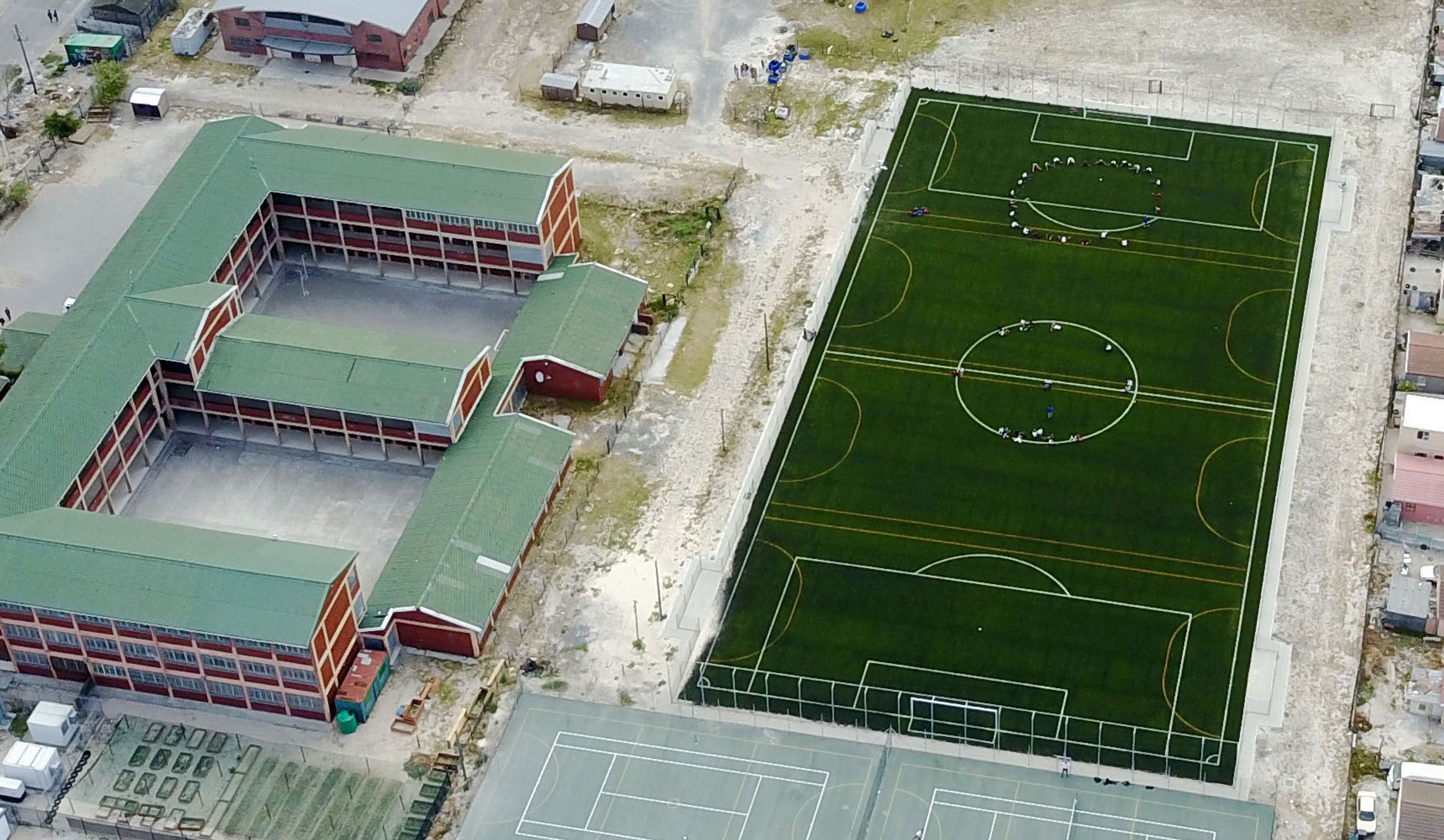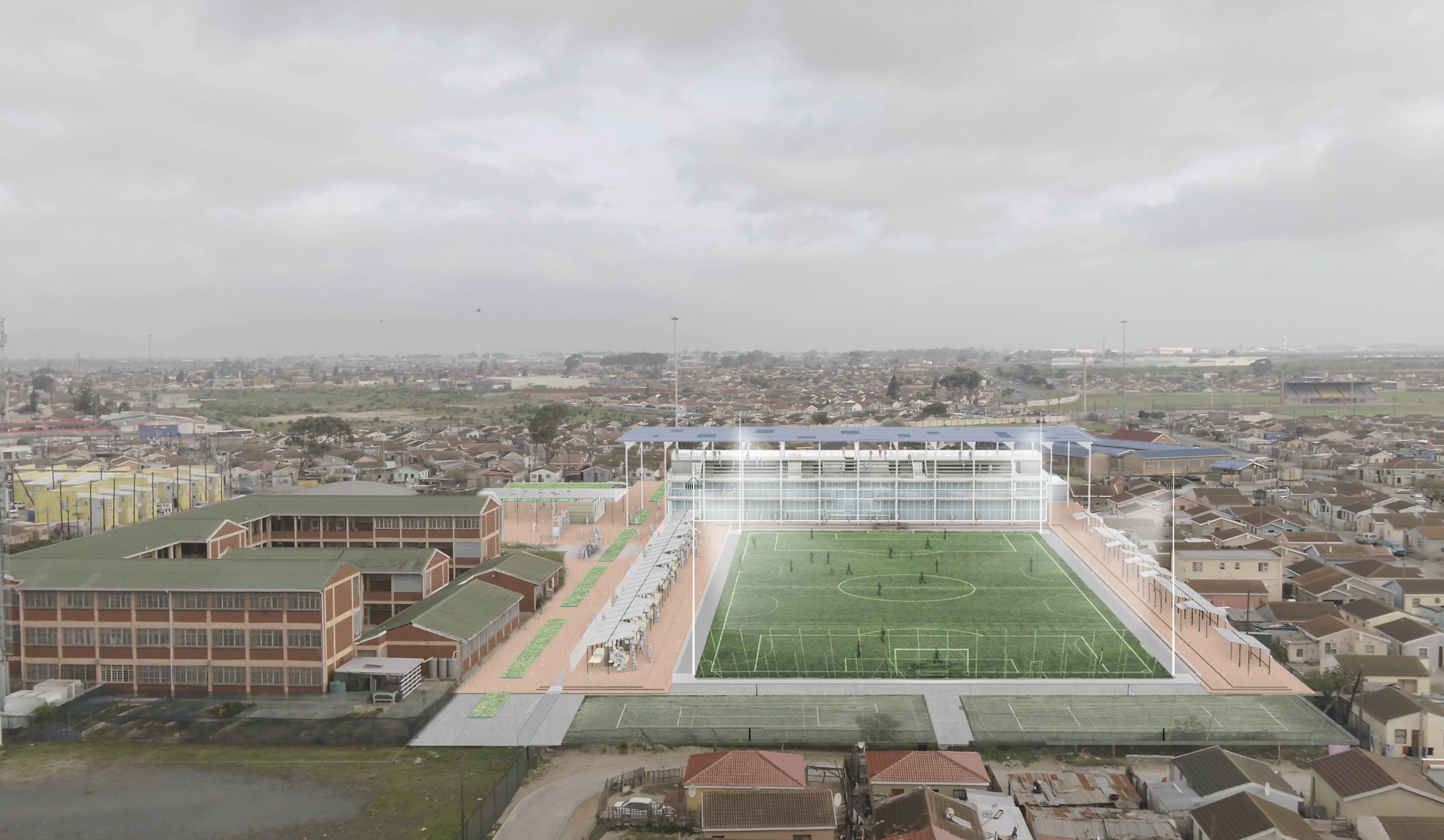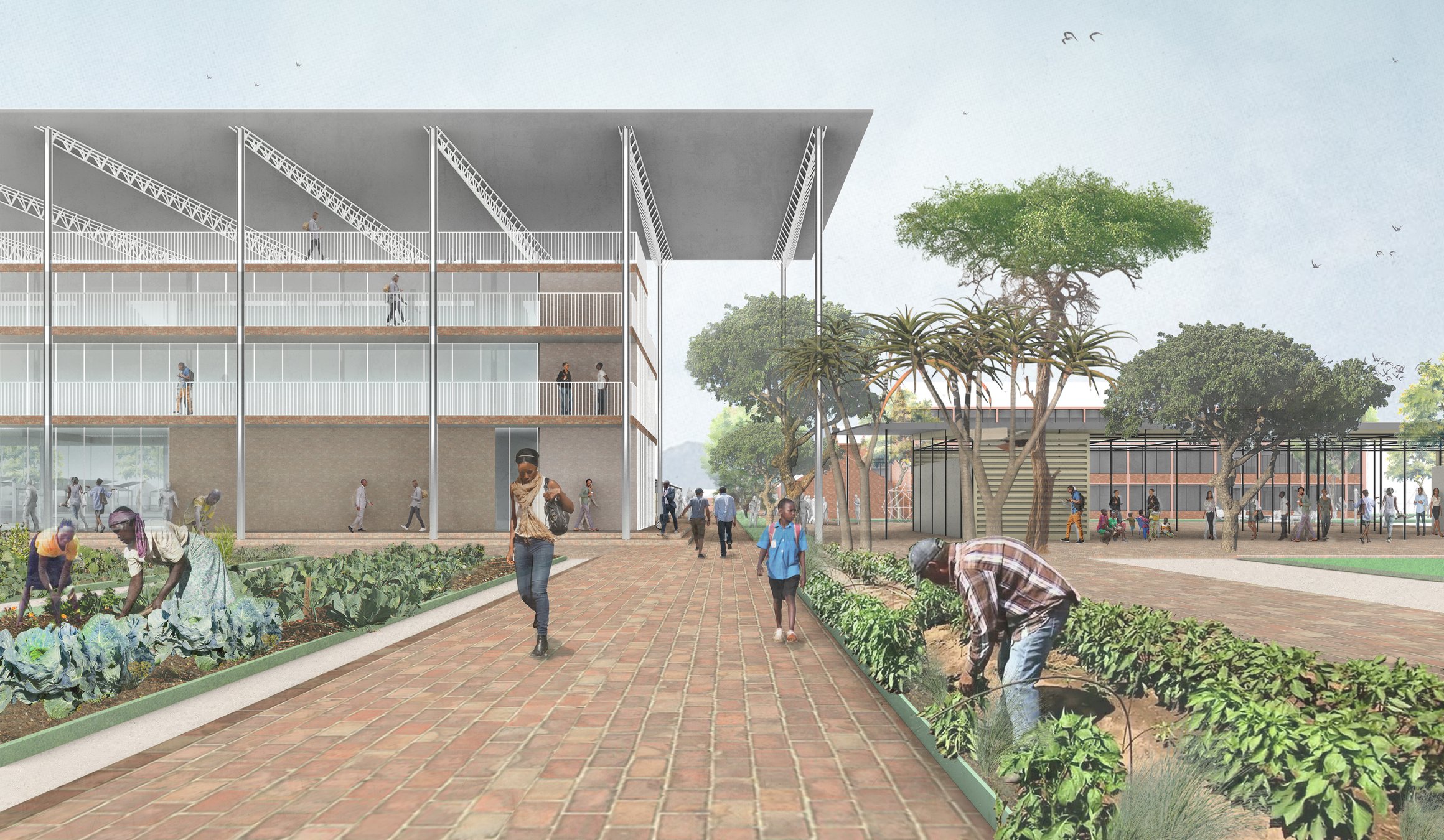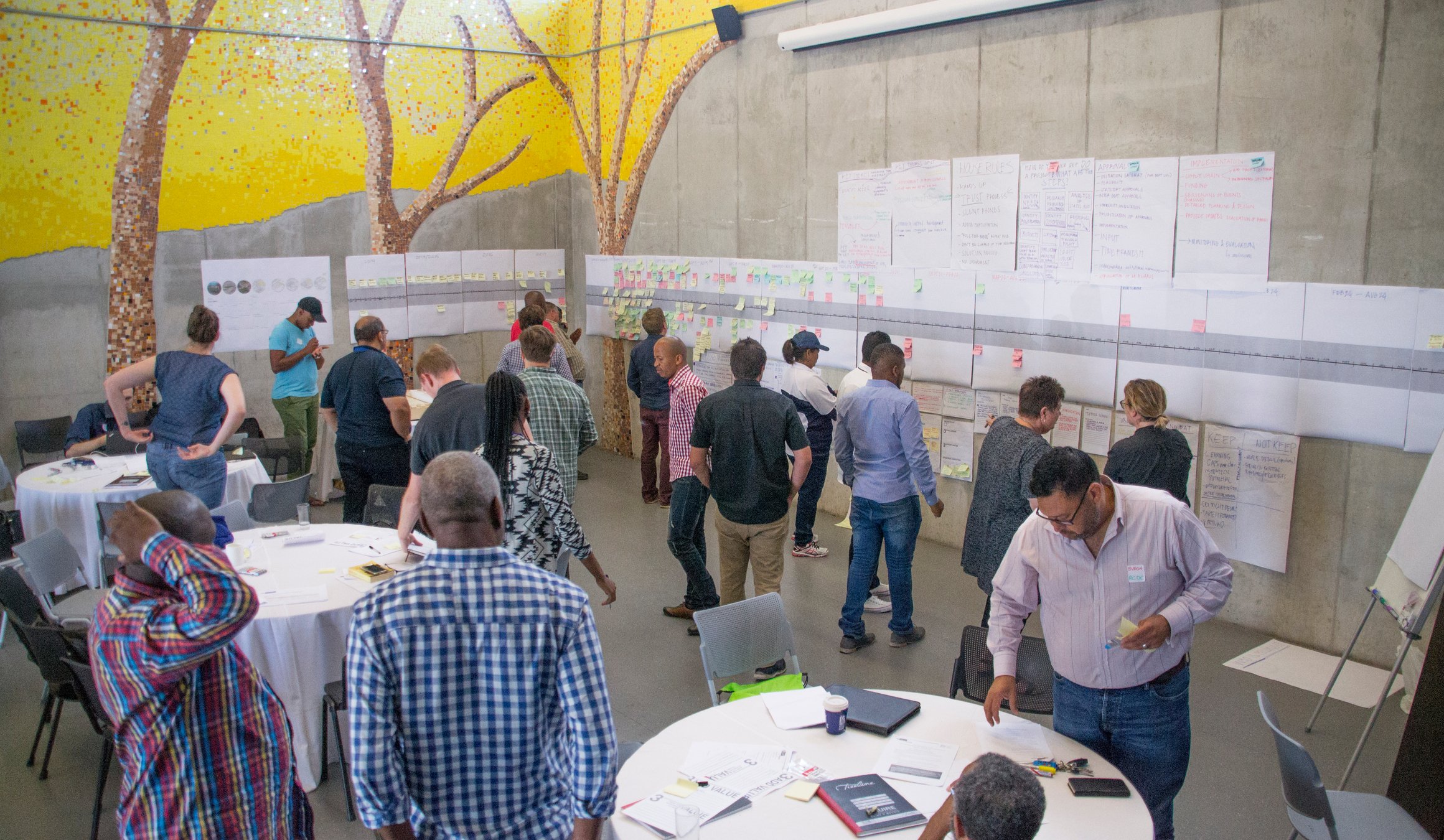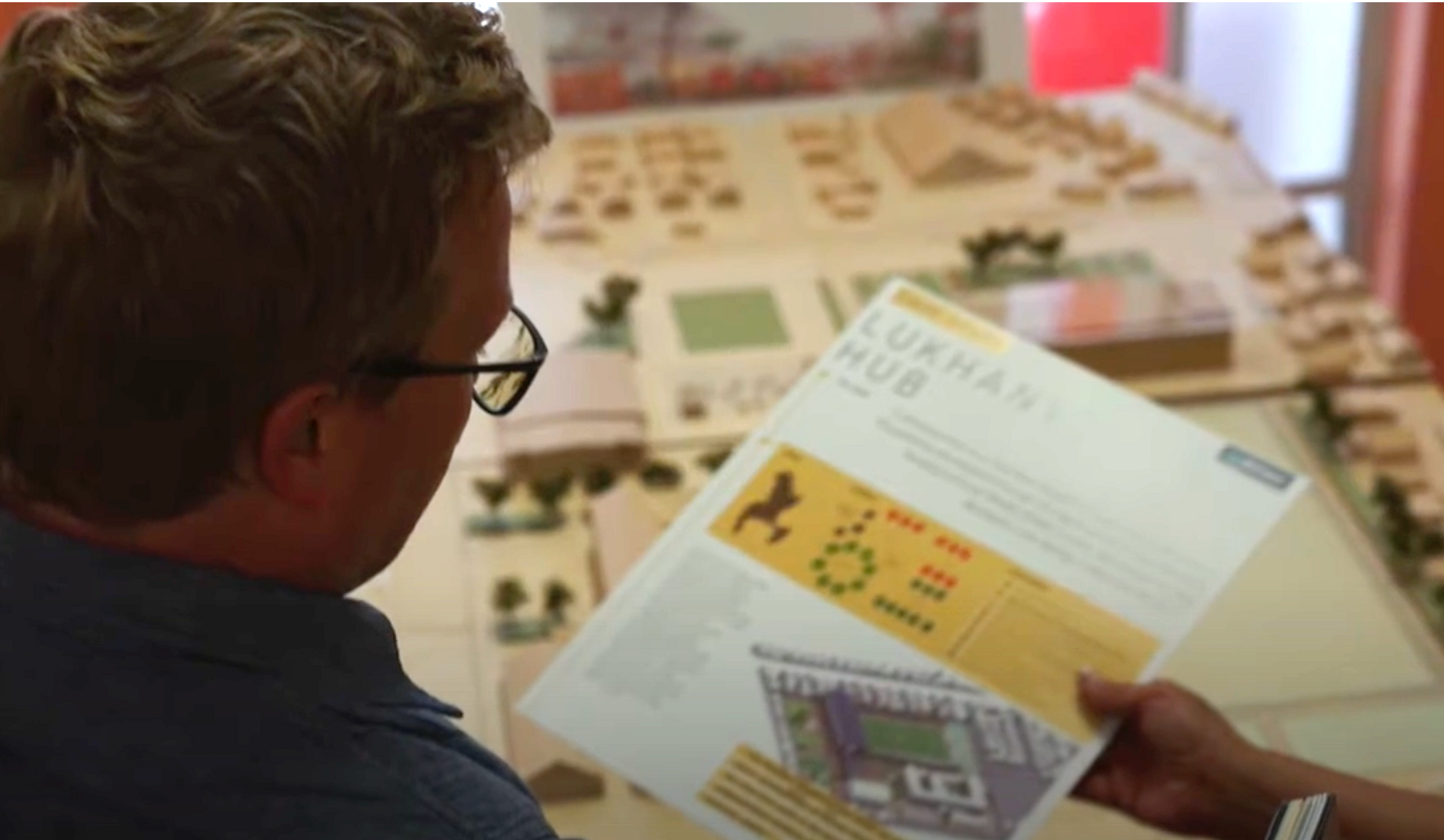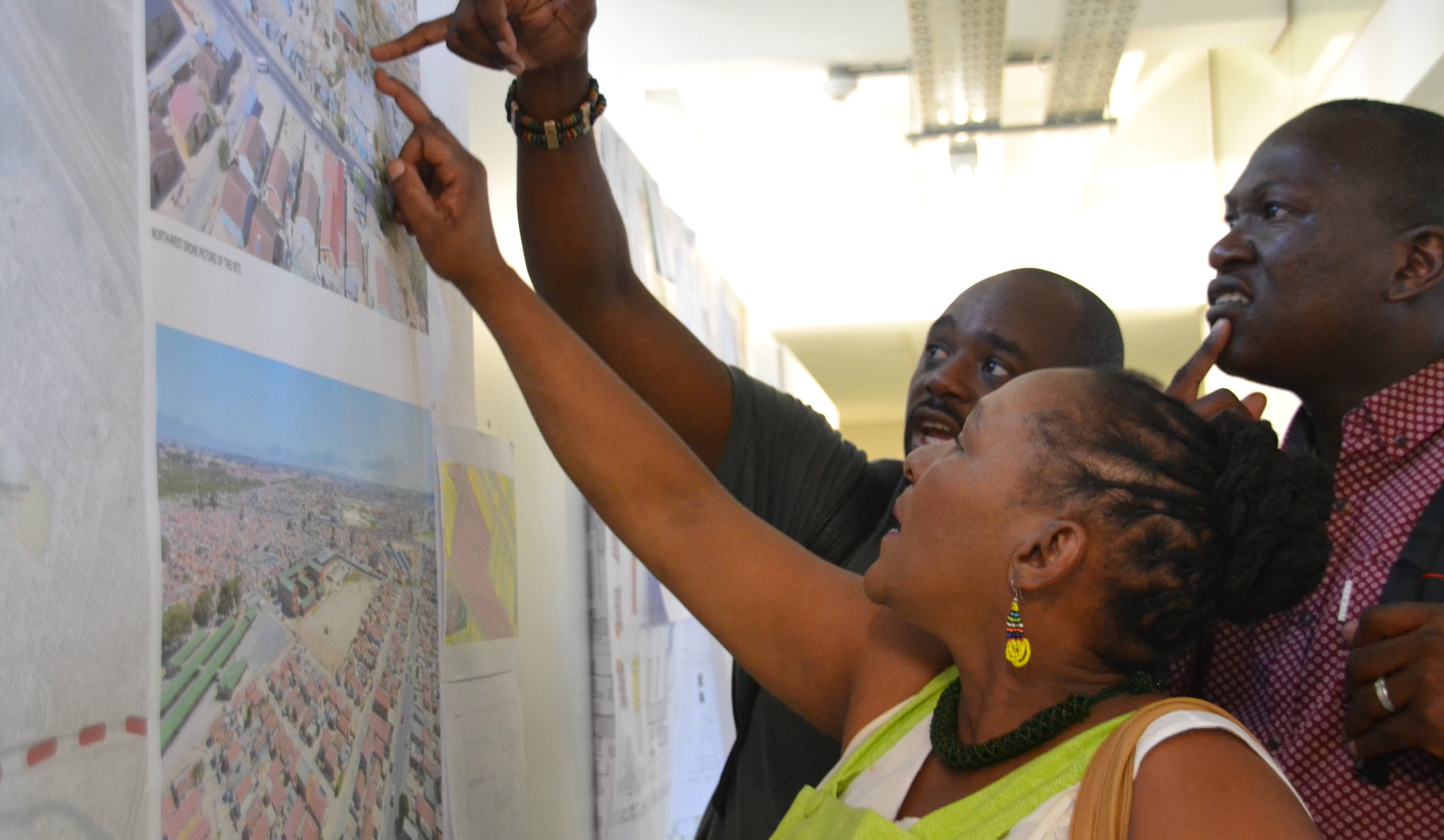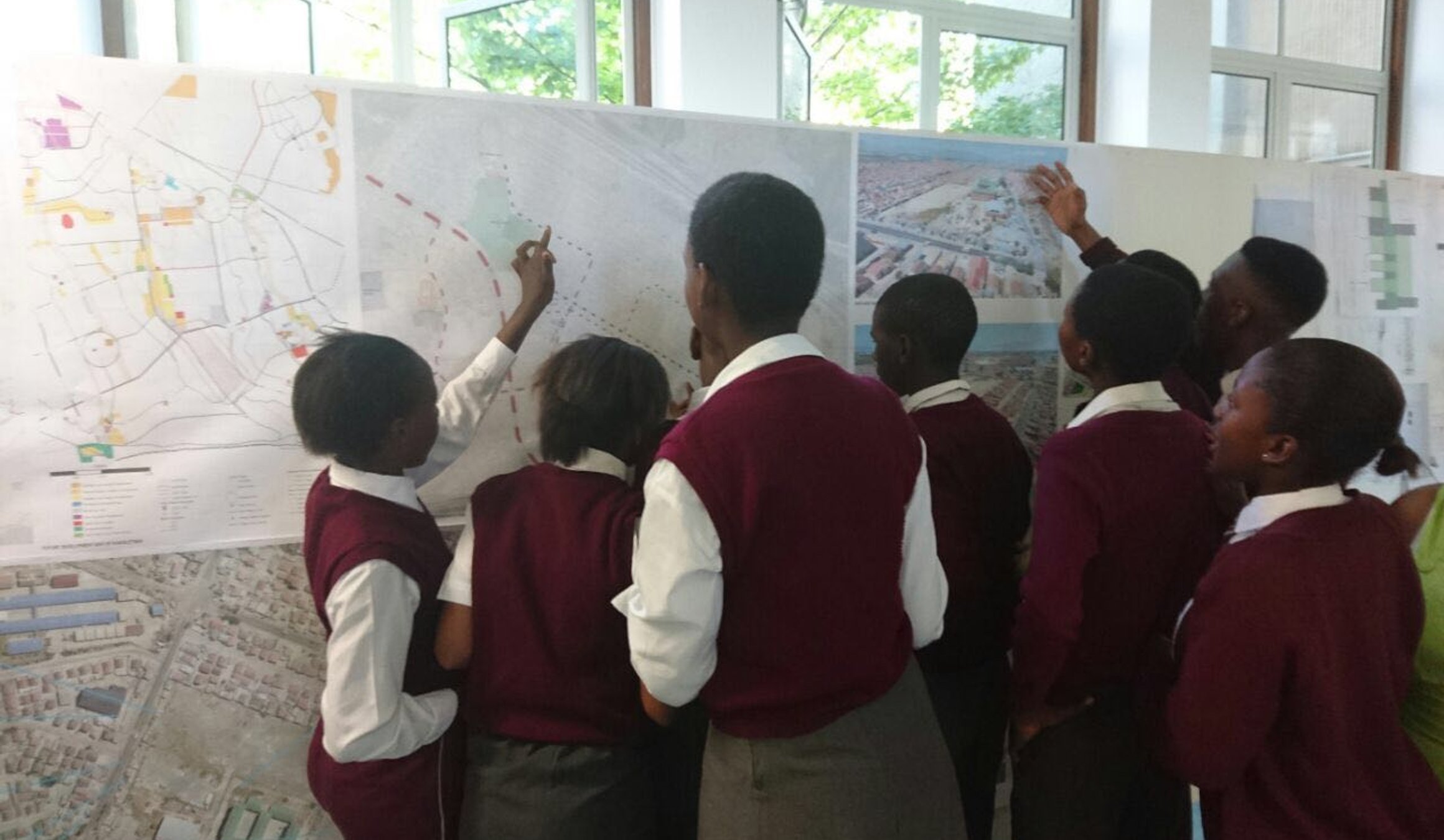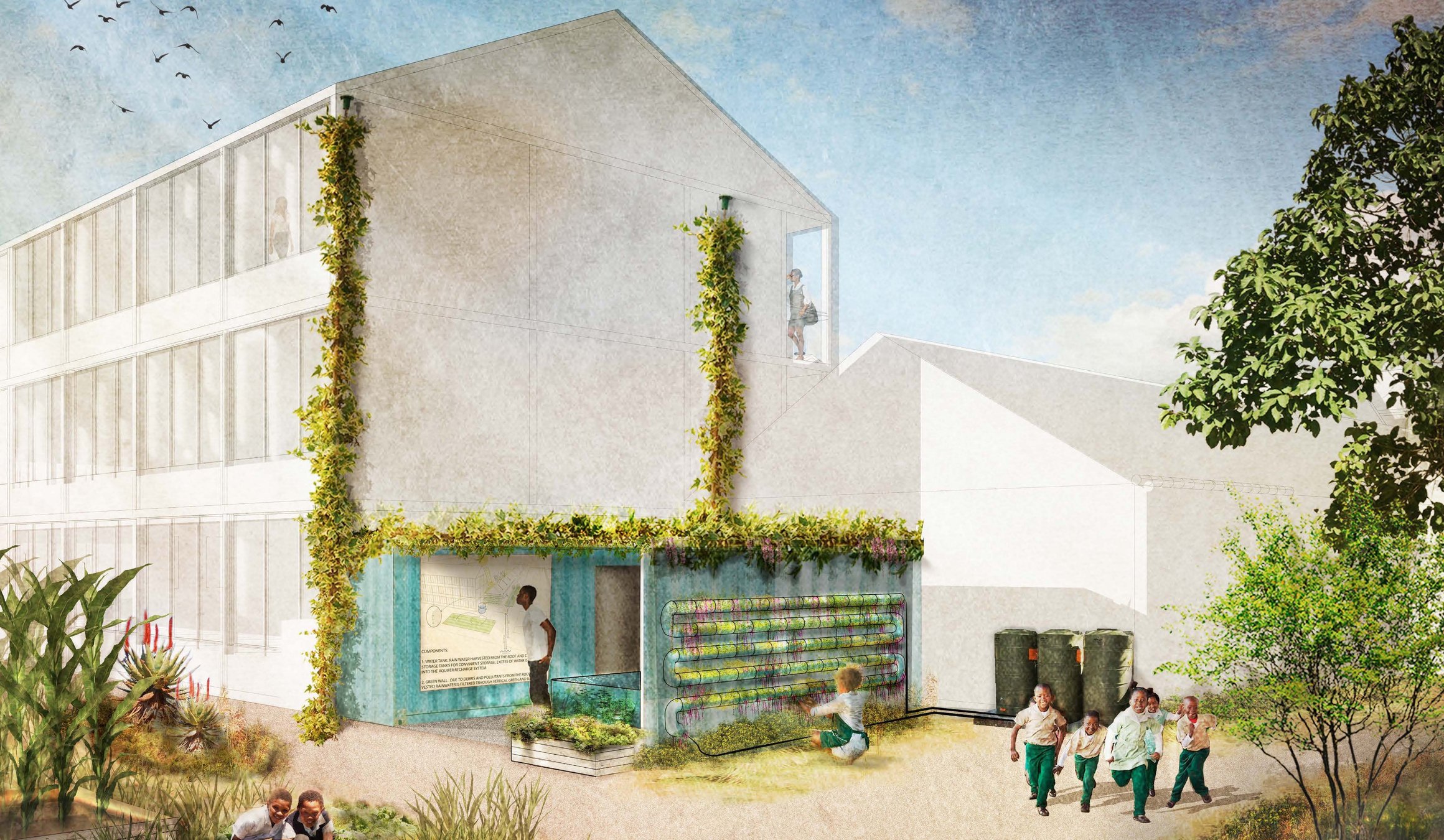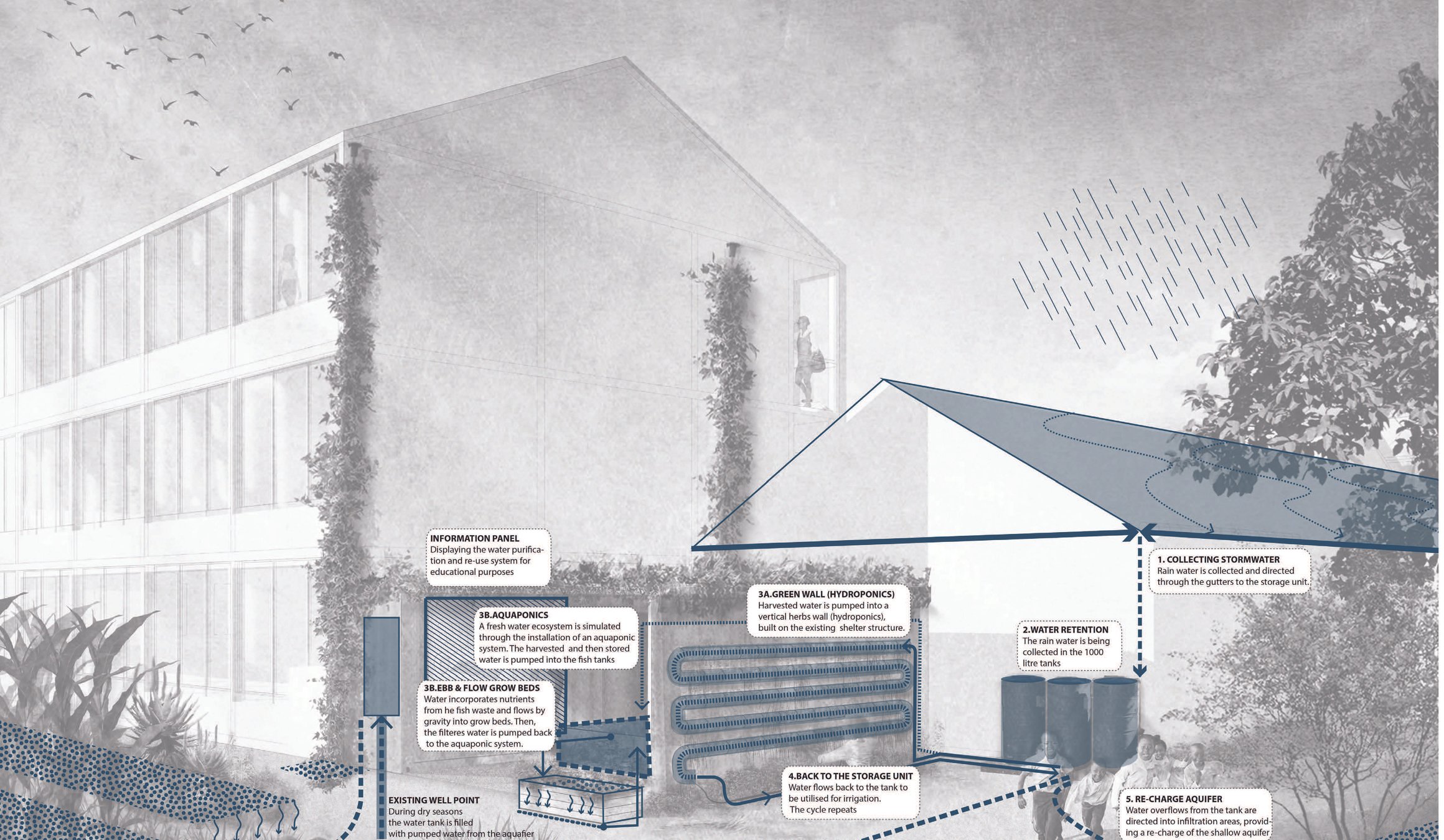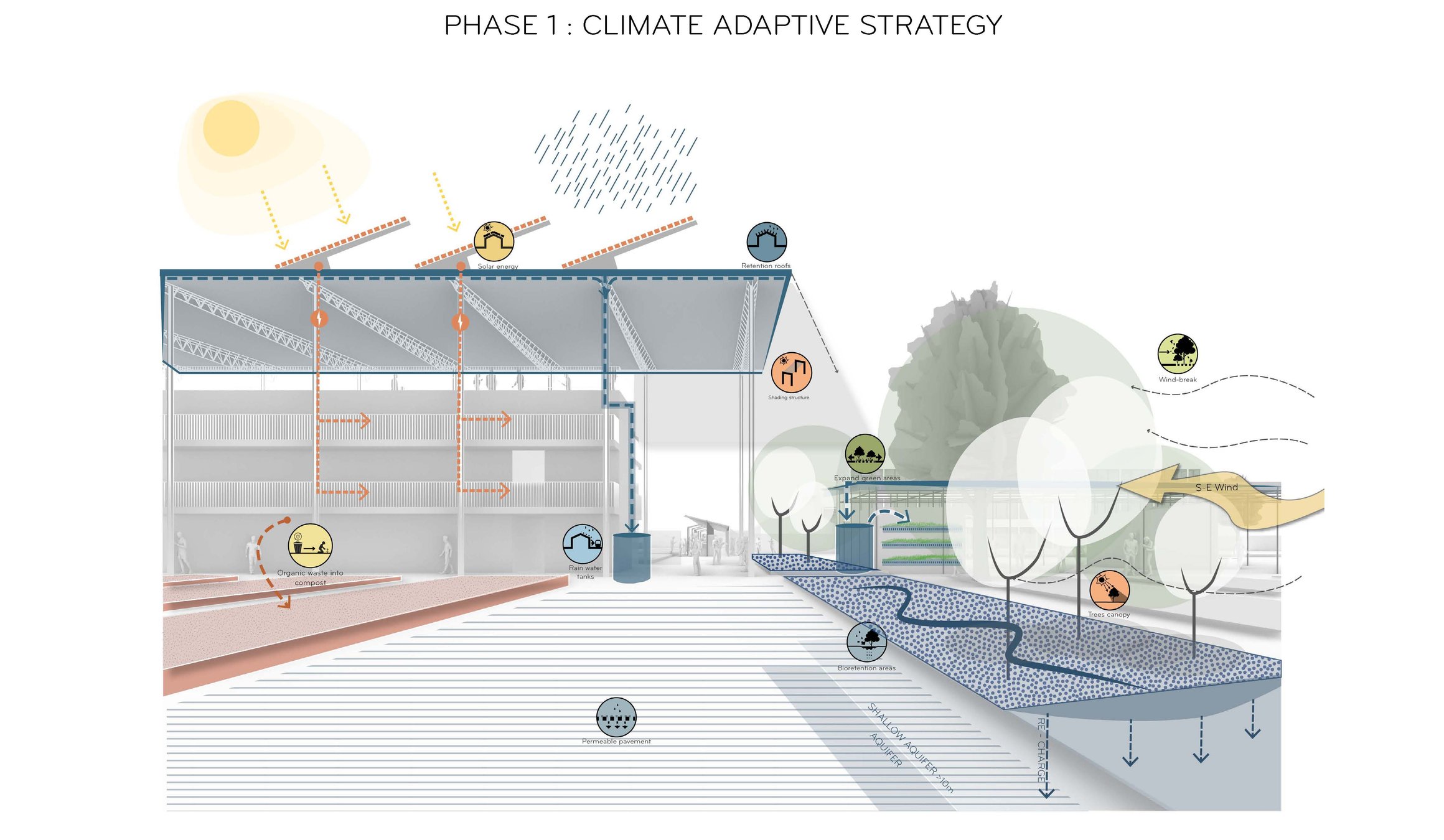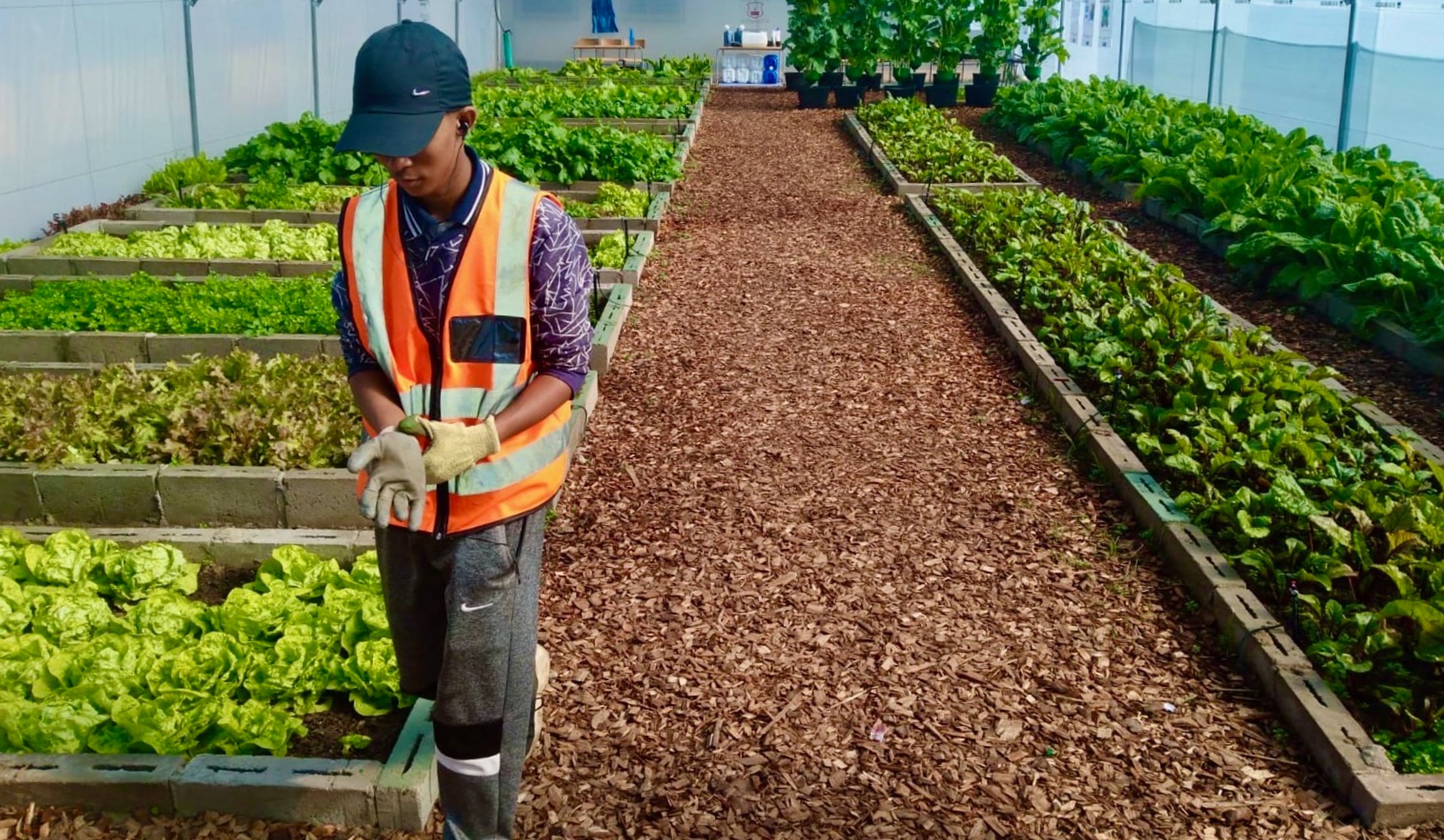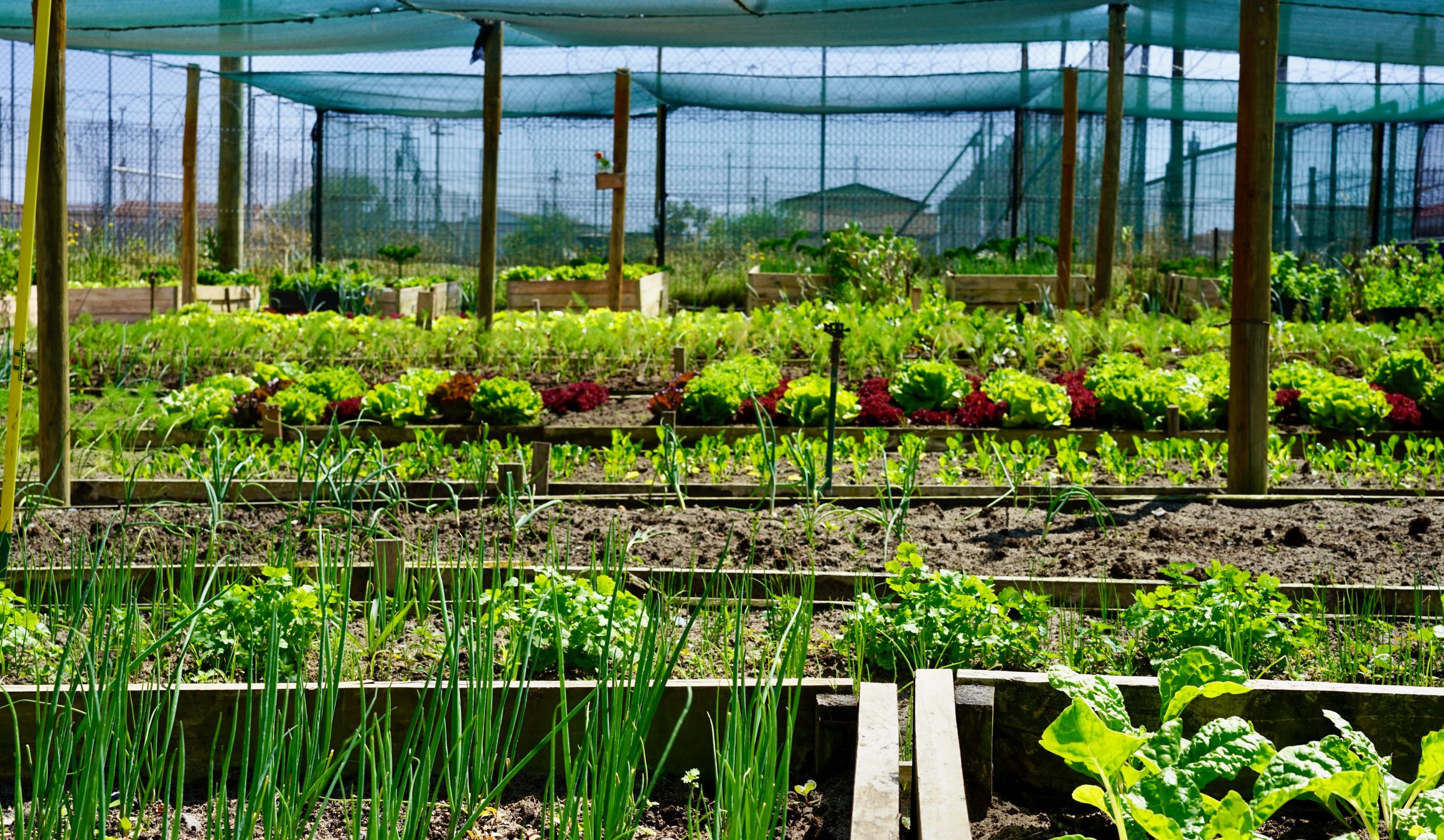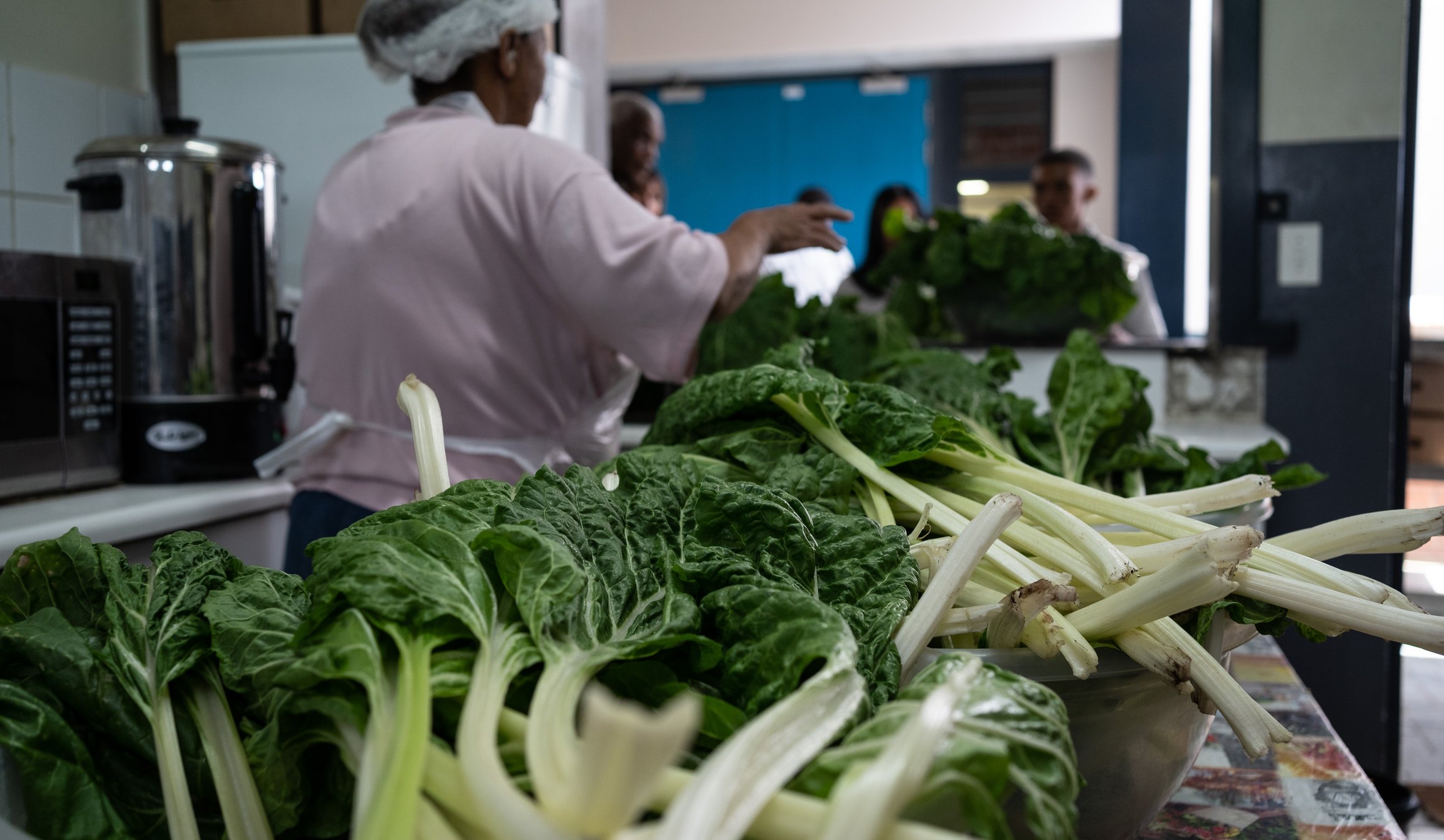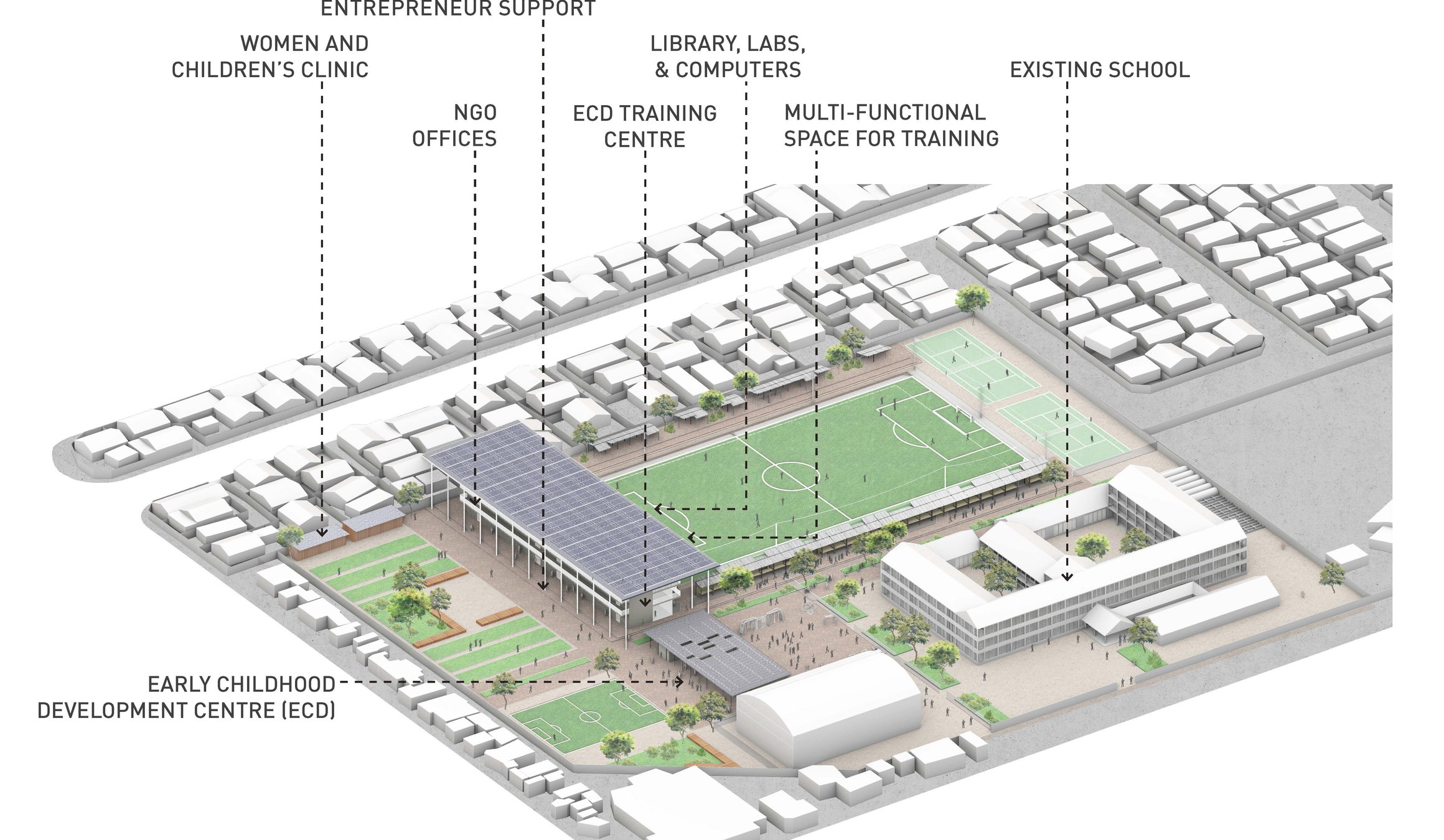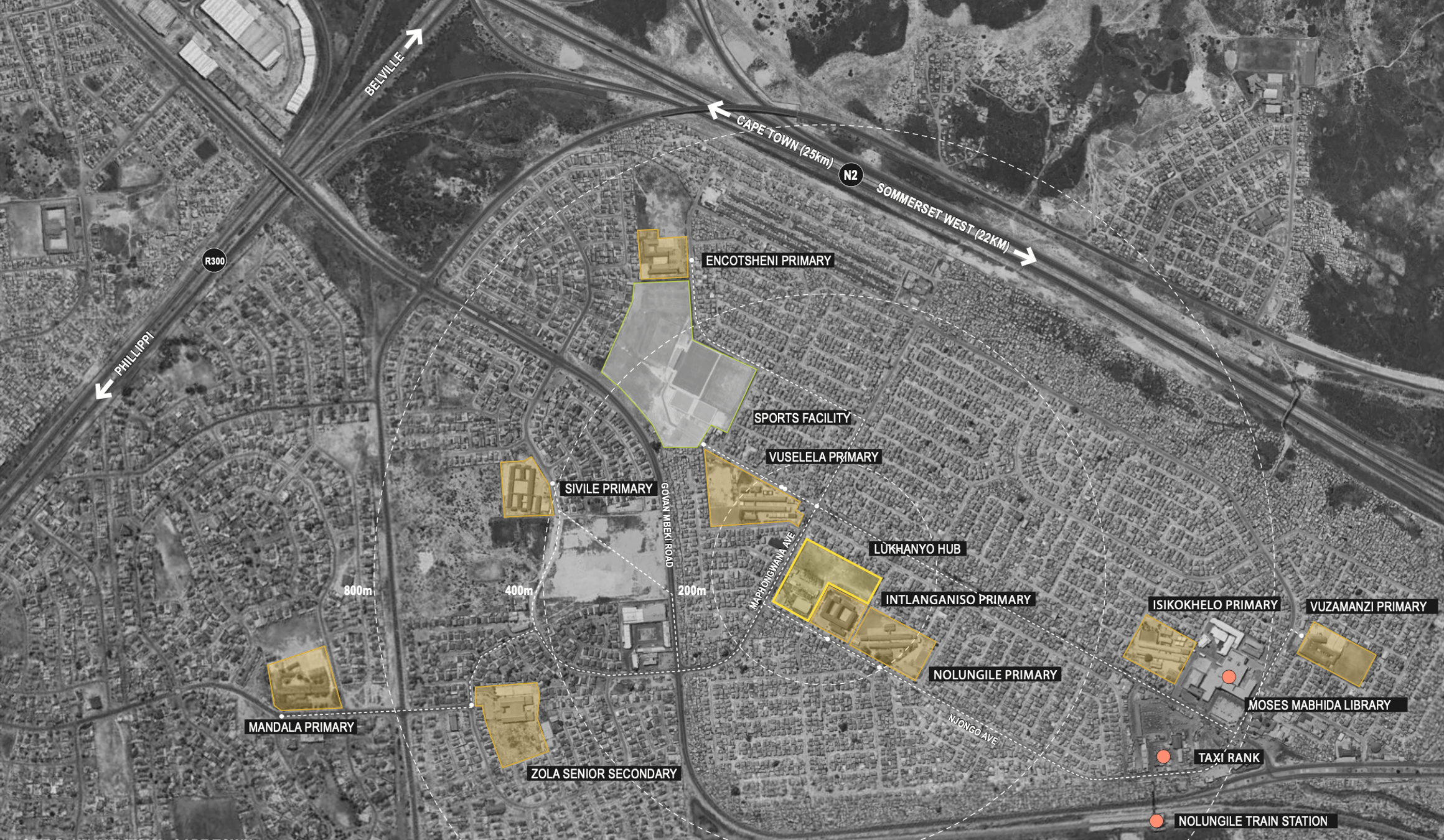Lukhanyo Hub, South Africa
Lukhanyo Hub is a replicable model designed to unlock the value of underutilized public land on school sites in South African cities, while contributing to more connected and resilient neighborhoods.
Sustainable and inclusive community infrastructure in Cape Town
Land in South African townships is fraught with seemingly insurmountable challenges related to service delivery, limited resources, increased pressure through rapid urbanization, and stalled socioeconomic development. The insecurity and continuing lack of opportunities in Khayelitsha reflects a persistent legacy of exclusionary apartheid-era planning still felt by local communities across the country.
Since 2014, we have been working closely with local stakeholders and the Western Cape government to develop and implement a new approach being piloted at Intlanganiso Secondary School. The project is focused on carefully introducing new social, economic and environmental infrastructure through mixed-use infill development that responds holistically to local needs, supports integrated service delivery, improves safety, and provides a framework for a set of ‘cradle to career’ programs that strengthen collective well-being and urban resilience.
Implemented in stages through continuous engagement with the community, the climate-sensitive design brings together new education spaces, an early childhood development center, maternal and child health facilities, vocational training and entrepreneur support spaces, sports and recreation infrastructure, embedded systems for sustainable water management, and an urban agriculture initiative to improve nutrition and support micro-enterprise.
Lukhanyo Hub is an official test bed project for the Western Cape Economic Development Partnership, the Department of Human Settlements’ Living Cape Framework and the Department of Health’s ‘Whole of Society Approach’ for service delivery.
The project’s ‘Resilient Neighbourhood Model’, including the implementation of OKRA Landscape Architects’ Climate Resilience Toolkit, has been recognised by UN-Habitat and included in applied research projects at ETH Zürich’s Department of Architecture and the University of Cape Town’s African Centre for Cities. The Lukhanyo Urban Farming Network, which was incubated at Lukhanyo Hub, is now active across 11 sites.

Architect, urban designer, writer, honorary professor at the Centre for Advanced Spatial Analysis at the Bartlett School of Architecture, University College London, and founder of Massive Small.
“One of a small number of urban professionals who embody an approach to urban development that really appreciates and leverages the complexity of the urban environment. They combine long-form community engagement with a diversity of skill sets, providing opportunities for the innate creativity of local residents to be unleashed.“
